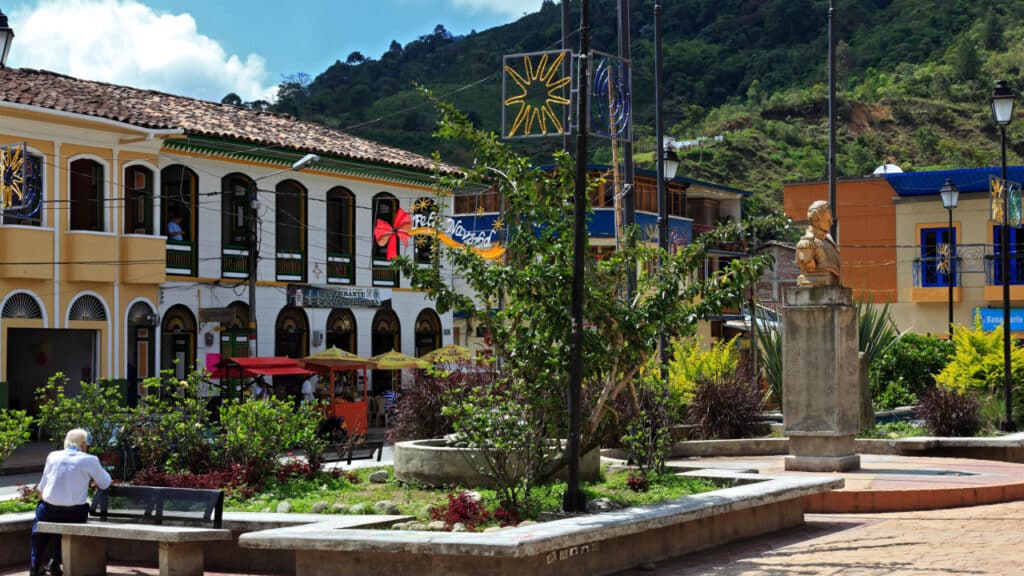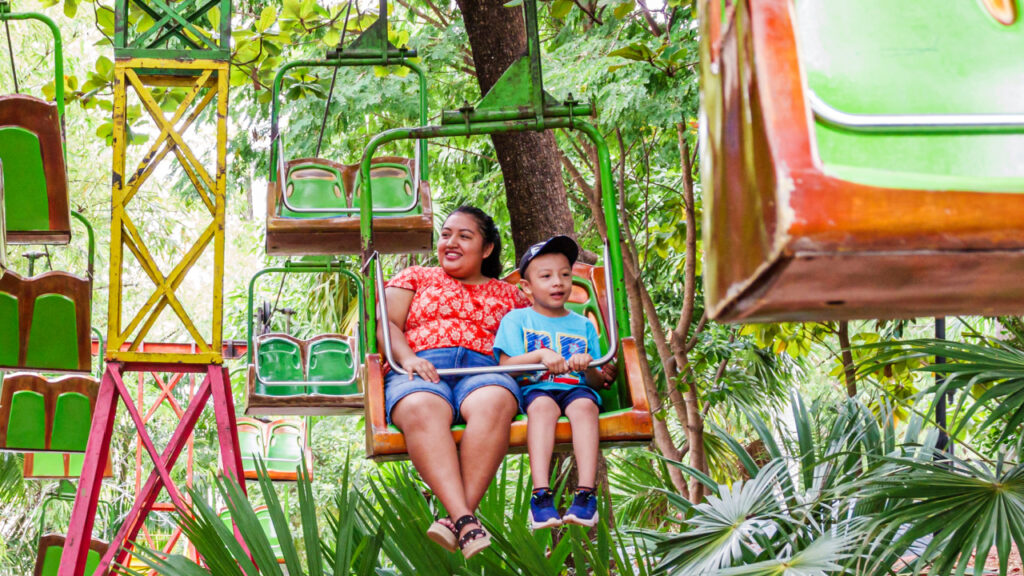
Sustainable Travel, the Latina Way: Tips That Go Beyond Reusable Water Bottles
The thirst for wanderlust is very much alive and well. But as the world gets smaller and more and more people step outside, it’s important to be mindful of our impact on the local ecosystems we go see. That’s why more and more people are looking for ways to make their trips more sustainable, mindful, and demure.
Latinas have always been vocal about their passions, and these four travel chicas are no exception. Not only do they have a passion for seeing the world, but they also use their platforms to help guide others so that they can make the best, most impactful decisions.
Planning a trip can seem daunting at first, especially if you want to minimize your overall footprint. These four inspiring Latinas shared how they are encouraging their followers and the world at large to travel sustainably.
Why Booking Local Is a Game-Changer for Sustainable Travel
Regardless of how you do it, one perk of modernity is that you have many ways to book your trips. But, if one thing holds, your dinero will usually go farther and work harder when you book directly with locals who live there.
Jazmin Harb tells FIERCE, “When taking a tour package, I look well beyond the first page of Google to find the local guides and agencies directly.”
“Having planned group tours for my community, I have received first-hand feedback that international brands and tour operators, along with popular third-party booking platforms, take major commission percentages or negotiate down pricing to almost no profitability,” she continues.
Lola Méndez echoes this sentiment.
“For me, sustainability goes beyond reusable straws and water bottles. Environmental sustainability is critical, but without social sustainability, the impact isn’t as great,” the Uruguayan American journalist asserts.
She further affirms, “Traveling green also means traveling in a way that positively impacts local communities. For instance, booking tours with local organizations rather [than] through international chain hotels, renting apartments abroad owned by locals rather than foreigners, [and] dining at locally-owned restaurants.
Interact With the Local Communities
Des Bishop of Afro Latina Travels understands how important it is to listen to locals and how that can enrich the overall experience.
“I make sure to listen to locals and validate how they feel about tourists and learn as much as I can about their culture,” the Panamanian diversity and inclusion consultant states.
She adds, “I prioritize working with local businesses, artisans, and guides, ensuring our financial contribution stays within the local community. Additionally, when I host retreats [through Afro Latina Travels], we always give back to the community, typically with a toy drive or educational contributions.”
CEO of This Latina Travels, Bianca Alba, feels strongly about interactions with local communities as she understands that it’s about more than just a transaction.
“I also make an effort to listen to locals. What do they want visitors to know? What do they wish travelers would do differently? Travel isn’t about taking, it’s about exchanging, learning, and contributing in ways that uplift, not extract,” she explains.
Treat Every Destination Like Home—That’s Sustainable Travel 101
Folks, be kind to the Pachamama. It’s the only one we have. We must come together and care for what we’ve got. You wouldn’t want people dumping junk in your home, so don’t do it to others.
“Act like you would at home,” Harb asserts.
She posits, “Throughout years of travel around the world, I have witnessed many actions by tourists, both local and international, that directly have a negative impact.”
“The reality is it is not just one person, one action, or one piece of trash, it is thousands of visitors and thousands of negative actions that quickly add up,” the Ecuadorian Latina of Arab-Italian descent tells FIERCE.
Bishop adds, “For me, sustainable travel means making a conscious decision to minimize the negative impact on your desired destination.”
Taking the Roads Less Traveled Is a Sustainable Travel Win
The crowds are probably the most harrowing part of travel. When there are too many people, lines are long. There’s little space for anything. And it ultimately overwhelms the local resources.
As someone with a public health background, Alba is painfully aware of how overcrowding can impact an ecosystem that wasn’t built to handle too many people.
She states, “Public health taught me that travel isn’t just about adventure; it’s about responsibility! It’s about understanding how our movements impact local communities, ecosystems, and even global health trends.”
“I approach travel with a focus on prevention and protection, not just for myself but for the people and places I visit,” the Bolivian-born content creator adds.
Harb also feels strongly about minimizing overcrowding while traveling and cites how she loves to promote lesser-known destinations that are oftentimes more rewarding.
“One major way I balance promoting popular destinations while minding the impact of tourism is to highlight day trips and less popular destinations near the world-famous spots,” she professes.
The content creator continues, “Sharing [this] content on social media, most of my community is surprised this destination even exists and how close it is to other famous spots […] that they already want to visit.”
Travel Off-Season and Rethink Fast Tourism
The perk of traveling off-season is that it minimizes the number of people you run into—something all introverted travelers will enjoy. Additional perks about traveling off-season are that prices will be more affordable, making travel more accessible.
Méndez states, “I prefer to travel in the shoulder season when destinations that are suffering from over-tourism are generally less crowded—doing so not only means better prices on airfare and accommodation but helps local businesses have a steady flow of business year-round, not just in the peak season.”
Bishop also believes that folks should travel during off-season as well but ultimately encourages travelers to be respectful and mindful of “fast tourism.”
“I believe the key to sustainable travel is to respect the destination you visit, be receptive to what locals tell you, and have authentic experiences versus fast tourism,” she tells FIERCE.
The travel and cultural advocate concludes, “The goal is to foster responsible travel where both sides, tourist & local community, can learn and benefit from each other.”




